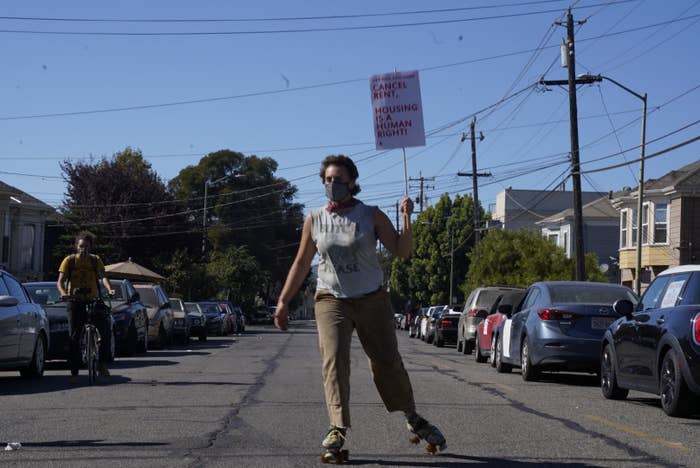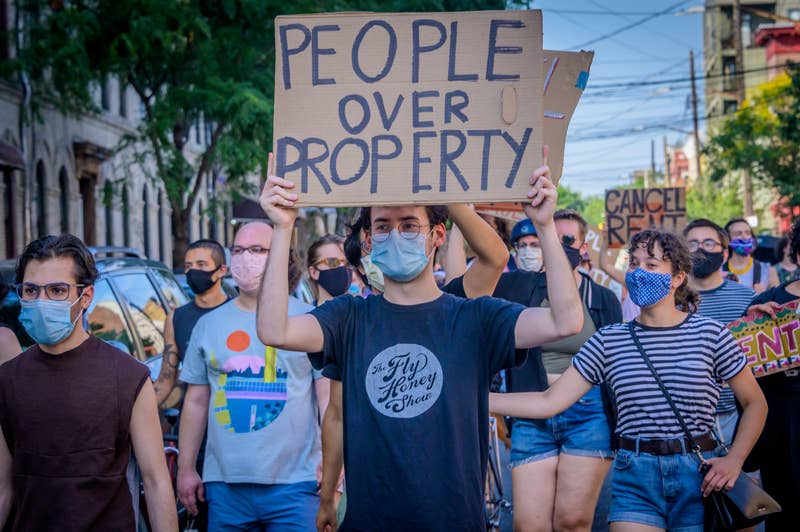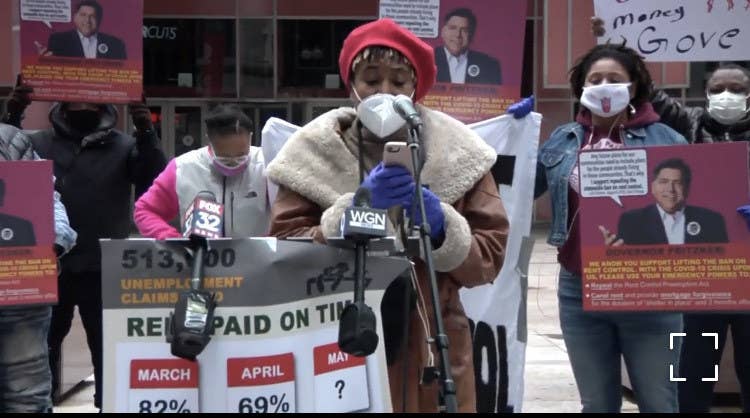Issued on: 25/10/2020 -

People attend an opposition rally to reject the Belarusian presidential election results in Minsk, Belarus October 25, 2020.présidentielle, le 25 octobre 2020. © Stringer, Reuters
Text by:NEWS WIRES
Tens of thousands of people marched through Minsk and other cities on Sunday, keeping pressure on Belarusian President Alexander Lukashenko a day before the opposition threatens to launch a national strike if he refuses to resign.
Crowds streamed through the capital shouting "strike", waving red-and-white opposition flags and beating drums on the 11th straight weekend of mass protests since a disputed election plunged the country into turmoil.
Twelve metro stations were closed, helmeted riot police patrolled the streets and mobile internet services were disrupted in Minsk. Two journalists were detained ahead of the protest, a local journalists' association said.
Tens of people were detained and security forces used tear gas in the western town of Lida, the Russian news agency RIA quoted the regional branch of the interior ministry as saying.
A former Soviet collective farm manager, Lukashenko has ruled Belarus for more than a quarter of a century and has shown little inclination to quit, buoyed by loans and the offer of military support from traditional ally Russia.
The president's main opponents have been jailed or fled into exile following the Aug. 9 election, which Lukashenko's opponents accuse him of rigging to win a sixth straight term. He denies electoral fraud.
Nationwide strike ultimatum
Sviatlana Tsikhanouskaya, his main electoral challenger, has led calls from exile for a national strike to begin on Monday if Lukashenko refuses to release all political prisoners and resigns to make way for a new election.
"Today at 23:59 the term of the People's Ultimatum will expire, and if the demands are not met, the Belarusians will start a national strike," she said in statement.
Lukashenko has signalled that he would ignore the ultimatum.
The United States, the European Union, Britain and Canada have imposed sanctions against a string of senior officials in Belarus accused of fraud and human rights abuses in the wake of the presidential election.
Lukashenko has accused Western countries of meddling in the internal affairs of Belarus and trying to instigate a violent uprising against him.
In a call with U.S. Secretary of State Mike Pompeo on Saturday, he said Belarus and Russia were ready to respond jointly to external threats, Belarusian state television reported.
(REUTERS)
Belarus: Over 100,000 protest against Lukashenko ahead of strike ultimatum
Police used stun grenades and reports say nearly 130 people were arrested. The rally drew more than 100,000 protesters, a day before the opposition's deadline for strongman Alexander Lukashenko to resign.
Watch video 02:50 https://p.dw.com/p/3kPsr
Tens of thousands rally again in Belarus
More than 100,000 Belarusians flooded the streets of the capital Minsk on Sunday, on the final day before a deadline set by the opposition for President Alexander Lukashenko to resign, following months of protests.
People streamed in from different directions along Victors' Avenue to the Hero City Obelisk on a central square that commemorates World War II.
Read more:Lukashenko: Belarus and Russia will face external threats together
Videos taken by bystanders at the demonstrations in Minsk showed a convoy of buses carrying security personnel to the city center, along with metal cordons. Meanwhile, officials shut 12 metro stations and restricted mobile internet in an effort to stop people from gathering.
The Interior Ministry issued an advance warning that people should not attend demonstrations for which no permit has been issued.
Nearly 130 arrests
Human rights group Vesna-96 said 128 people were detained, and shared a list of their names online.
Journalist Hanna Liubakova told DW that, as with previous protests, police moved in toward the end of the day to make arrests.
"Riot police attacked peaceful protesters with stun grenades and we also heard shootings — police shot rubber bullets as well — and there is at least one confirmed wounded person," she said.
An interior ministry spokeswoman said it was too early to say how many people had been injured or detained. "We will only know by the morning if there are any injured people," Olga Chemodanova was cited by the Russian news agency RIA as saying.
Some journalists covering the protests were also arrested, local media reported.
Several protesters were detained by police in the town of Lida in western Belarus, RIA cited the regional branch of the interior ministry as saying. Police reportedly fired tear gas at protesters.
Read more:Belarus: Thousands turn out for protests despite police threat to open fire
'Resign or face strike'
Exiled civil rights activist Sviatlana Tsikhanouskaya and opposition protesters this month gave embattled strongman Lukashenko a deadline of two weeks to resign, put an end to police violence and release political prisoners, warning that he would otherwise face a general strike.
Although some members of the opposition have been released from prison, there are no more concessions in sight from Lukashenko's administration.
Read more:Opinion: EU's Sakharov Prize for Belarus dissidents sends a strong signal
Tsikhanouskaya said later in the day that the national strike would begin on Monday after the government responded with force to the protests.
"The regime once again showed Belarusians that force is the only thing it is capable of," she wrote in a statement. "That's why tomorrow, October 26, a national strike will begin."
Watch video 02:10 https://p.dw.com/p/3kPsr
EU agrees to target Belarus with new sanctions
Tsikhanouskaya fled Belarus after an August vote saw Lukashenko claim victory for a sixth term. During a visit to Copenhagen on Friday to meet Danish Foreign Minister Jeppe Kofod she called for a repeat ballot “as soon as possible,” and in a separate statement said a date for the next vote must be determined by the end of the year.
Uniformed police have repeatedly cracked down on protesters, demonstrating against Lukashenko’s rule, following the vote which several western countries and officials denounced as rigged.
Read more: Sviatlana Tsikhanouskaya on wanted list in Belarus, Russia
Lukashenko: Belarus and Russia will face external threats together
Embattled Belarusian President Alexander Lukashenko has told the US that his country and Russia are united against external threats. Opposition protesters gathered again to rally, and have called for a national strike.

President Alexander Lukashenko spoke with US Secretary of State Mike Pompeo in a phone call on Saturday, in which the Belarusian leader said his country and Russia were ready to respond jointly to external threats.
The remarks, reported by Russia's Interfax news agency, come as protesters continue to call for Lukashenko's resignation and as he faces the prospect of a national strike that could begin on Monday.
Read more: Putin pledges a $1.5 billion loan while meeting Lukashenko in Sochi
"Russia does not interfere in the internal affairs of Belarus. At the same time, the countries are ready to jointly respond to emerging external threats," Lukashenko is said to have told Pompeo, according to Interfax which cited Belarus state television.
"By mutual opinion, after Pompeo's February visit to Minsk, the situation has changed dramatically, new challenges have arisen and are emerging," the president said.
Read more: Sviatlana Tsikhanouskaya calls for German mediation in Belarus
The US has already imposed sanctions on Belarusian officials, following violent crackdowns at demonstrations in Minsk and across the country.
During the call, the US State Department said it had urged Belarusian authorities to ''engage in a meaningful dialogue with genuine representatives of civil society,'' including Lukashenko's leading election opponent, opposition candidate Sviatlana Tsikhanouskaya.
The US also reiterated its "strong support for the independence and sovereignty of Belarus,'' the State Department said.
Read more: Opinion: EU's Sakharov Prize for Belarus dissidents sends a strong signal
Watch video 05:12 https://p.dw.com/p/3kOYt
Tsikhanouskaya reacts to Sakharov Prize win
Protests persist
Hundreds of women marched across the capital, Minsk, in heavy rain on Saturday, as protesters continue to demand Lukashenko's resignation. The protests have been going on continuously since the disputed presidential election in early August.
Read more: Belarus opposition wins European Parliament rights award
The women carried umbrellas in the white and red colors of the opposition flag, holding placards that stated their professions and chanted ''Go away!'' as a demand for the president's resignation.
According to the Viasna human rights center in Belarus, some 10 protesters were arrested on Saturday.
The Belarusian political crisis was triggered by official results of the August 9 presidential election, which gave Lukashenko a victory with 80% of the vote — a result the opposition has insisted was rigged.
Lukashenko, who has ruled Belarus with an iron fist since 1994, has blamed the US and its European allies of fomenting unrest in the ex-Soviet country.
Read more: Belarus: Thousands turn out for protests despite police threat to open fire
Watch video01:59 https://p.dw.com/p/3kOYt
Violent crackdown on Belarus protests
jcg/shs (Reuters, AP)
Police used stun grenades and reports say nearly 130 people were arrested. The rally drew more than 100,000 protesters, a day before the opposition's deadline for strongman Alexander Lukashenko to resign.
Watch video 02:50 https://p.dw.com/p/3kPsr
Tens of thousands rally again in Belarus
More than 100,000 Belarusians flooded the streets of the capital Minsk on Sunday, on the final day before a deadline set by the opposition for President Alexander Lukashenko to resign, following months of protests.
People streamed in from different directions along Victors' Avenue to the Hero City Obelisk on a central square that commemorates World War II.
Read more:Lukashenko: Belarus and Russia will face external threats together
Videos taken by bystanders at the demonstrations in Minsk showed a convoy of buses carrying security personnel to the city center, along with metal cordons. Meanwhile, officials shut 12 metro stations and restricted mobile internet in an effort to stop people from gathering.
The Interior Ministry issued an advance warning that people should not attend demonstrations for which no permit has been issued.
Nearly 130 arrests
Human rights group Vesna-96 said 128 people were detained, and shared a list of their names online.
Journalist Hanna Liubakova told DW that, as with previous protests, police moved in toward the end of the day to make arrests.
"Riot police attacked peaceful protesters with stun grenades and we also heard shootings — police shot rubber bullets as well — and there is at least one confirmed wounded person," she said.
An interior ministry spokeswoman said it was too early to say how many people had been injured or detained. "We will only know by the morning if there are any injured people," Olga Chemodanova was cited by the Russian news agency RIA as saying.
Some journalists covering the protests were also arrested, local media reported.
Several protesters were detained by police in the town of Lida in western Belarus, RIA cited the regional branch of the interior ministry as saying. Police reportedly fired tear gas at protesters.
Read more:Belarus: Thousands turn out for protests despite police threat to open fire
'Resign or face strike'
Exiled civil rights activist Sviatlana Tsikhanouskaya and opposition protesters this month gave embattled strongman Lukashenko a deadline of two weeks to resign, put an end to police violence and release political prisoners, warning that he would otherwise face a general strike.
Although some members of the opposition have been released from prison, there are no more concessions in sight from Lukashenko's administration.
Read more:Opinion: EU's Sakharov Prize for Belarus dissidents sends a strong signal
Tsikhanouskaya said later in the day that the national strike would begin on Monday after the government responded with force to the protests.
"The regime once again showed Belarusians that force is the only thing it is capable of," she wrote in a statement. "That's why tomorrow, October 26, a national strike will begin."
Watch video 02:10 https://p.dw.com/p/3kPsr
EU agrees to target Belarus with new sanctions
Tsikhanouskaya fled Belarus after an August vote saw Lukashenko claim victory for a sixth term. During a visit to Copenhagen on Friday to meet Danish Foreign Minister Jeppe Kofod she called for a repeat ballot “as soon as possible,” and in a separate statement said a date for the next vote must be determined by the end of the year.
Uniformed police have repeatedly cracked down on protesters, demonstrating against Lukashenko’s rule, following the vote which several western countries and officials denounced as rigged.
Read more: Sviatlana Tsikhanouskaya on wanted list in Belarus, Russia
Lukashenko: Belarus and Russia will face external threats together
Embattled Belarusian President Alexander Lukashenko has told the US that his country and Russia are united against external threats. Opposition protesters gathered again to rally, and have called for a national strike.

President Alexander Lukashenko spoke with US Secretary of State Mike Pompeo in a phone call on Saturday, in which the Belarusian leader said his country and Russia were ready to respond jointly to external threats.
The remarks, reported by Russia's Interfax news agency, come as protesters continue to call for Lukashenko's resignation and as he faces the prospect of a national strike that could begin on Monday.
Read more: Putin pledges a $1.5 billion loan while meeting Lukashenko in Sochi
"Russia does not interfere in the internal affairs of Belarus. At the same time, the countries are ready to jointly respond to emerging external threats," Lukashenko is said to have told Pompeo, according to Interfax which cited Belarus state television.
"By mutual opinion, after Pompeo's February visit to Minsk, the situation has changed dramatically, new challenges have arisen and are emerging," the president said.
Read more: Sviatlana Tsikhanouskaya calls for German mediation in Belarus
The US has already imposed sanctions on Belarusian officials, following violent crackdowns at demonstrations in Minsk and across the country.
During the call, the US State Department said it had urged Belarusian authorities to ''engage in a meaningful dialogue with genuine representatives of civil society,'' including Lukashenko's leading election opponent, opposition candidate Sviatlana Tsikhanouskaya.
The US also reiterated its "strong support for the independence and sovereignty of Belarus,'' the State Department said.
Read more: Opinion: EU's Sakharov Prize for Belarus dissidents sends a strong signal
Watch video 05:12 https://p.dw.com/p/3kOYt
Tsikhanouskaya reacts to Sakharov Prize win
Protests persist
Hundreds of women marched across the capital, Minsk, in heavy rain on Saturday, as protesters continue to demand Lukashenko's resignation. The protests have been going on continuously since the disputed presidential election in early August.
Read more: Belarus opposition wins European Parliament rights award
The women carried umbrellas in the white and red colors of the opposition flag, holding placards that stated their professions and chanted ''Go away!'' as a demand for the president's resignation.
According to the Viasna human rights center in Belarus, some 10 protesters were arrested on Saturday.
The Belarusian political crisis was triggered by official results of the August 9 presidential election, which gave Lukashenko a victory with 80% of the vote — a result the opposition has insisted was rigged.
Lukashenko, who has ruled Belarus with an iron fist since 1994, has blamed the US and its European allies of fomenting unrest in the ex-Soviet country.
Read more: Belarus: Thousands turn out for protests despite police threat to open fire
Watch video01:59 https://p.dw.com/p/3kOYt
Violent crackdown on Belarus protests
jcg/shs (Reuters, AP)

























